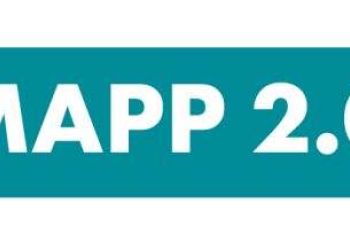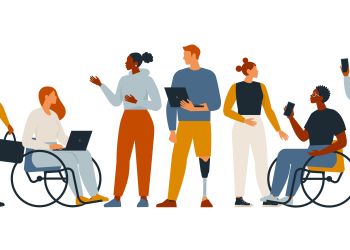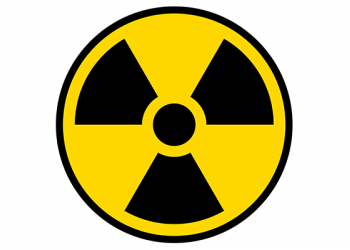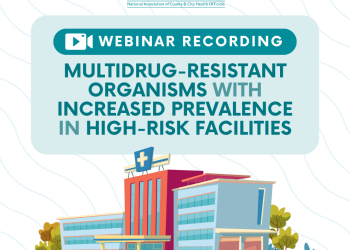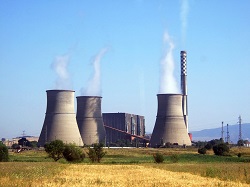 August 3rd was an historic day for the health of the United States as the White House announced the Clean Power Plan to tackle the effects of climate change. The Clean Power Plan establishes the first-ever national standards to limit carbon pollution from power plants. Climate change is transforming the landscape of public health by altering the severity, frequency, and types of challenges faced by local public health professionals and their partners. The health considerations associated with changing temperatures, changing precipitation patterns, extreme weather events, and other aspects of climate change are myriad and complex. The shifting distribution and prevalence of infectious disease, increased exposure to pollutants, as well as a range of impacts to mental health are just a few of the public health challenges that have arisen. Moreover, the health risks associated with climate change will not be shared equally among individuals, communities, and populations. Climate change will disproportionately burden the very young, older adults, people living with mental and physical disabilities, low-income people, and marginalized communities.
August 3rd was an historic day for the health of the United States as the White House announced the Clean Power Plan to tackle the effects of climate change. The Clean Power Plan establishes the first-ever national standards to limit carbon pollution from power plants. Climate change is transforming the landscape of public health by altering the severity, frequency, and types of challenges faced by local public health professionals and their partners. The health considerations associated with changing temperatures, changing precipitation patterns, extreme weather events, and other aspects of climate change are myriad and complex. The shifting distribution and prevalence of infectious disease, increased exposure to pollutants, as well as a range of impacts to mental health are just a few of the public health challenges that have arisen. Moreover, the health risks associated with climate change will not be shared equally among individuals, communities, and populations. Climate change will disproportionately burden the very young, older adults, people living with mental and physical disabilities, low-income people, and marginalized communities.
The nation’s 2,800 local health departments work closely with other government agencies, local businesses, and community partners to address the impacts that a changing climate has on health and to develop and implement solutions that keep people healthy and safe. However, federal efforts are needed in addition to local actions to address the challenges posed. The Clean Power Plan sets flexible and achievable standards to reduce carbon dioxide emissions by 32 percent from 2005 levels by 2030. Existing power plants are the largest source of carbon pollution in the nation. The Clean Power Plan provides the greatest protection for our communities from the impacts of climate change and from all of the harmful emissions of these plants. Cutting carbon pollution will also cut direct emissions of dangerous pollutants, including sulfur dioxide, nitrogen oxides, fine particulate matter and mercury, and will reduce ozone and particulate matter pollution. Reducing these pollutants will prevent thousands of premature deaths, asthma attacks, heart attacks, hospital admissions and emergency department visits.
A new report published in The Lancet further makes the case that tackling climate change now is the greatest global health opportunity of the 21st century. The public health sector has a critical role to play on the front lines addressing those health impacts; giving voice to the health implications of failure to act on climate change; fostering climate resilient communities; and ensuring that strategies protect health, reduce health inequities, and maximize health co-benefits. Many solutions can be found at the local level, and investing in neighborhood scale projects that create healthy, sustainable, and resilient communities is one of the best places to begin tackling the health effects of climate change. Local health departments should be open to innovative and non-traditional ideas and strategies to bring key stakeholders together to work on climate change-focused initiatives.
With the necessary resources, local public health departments are uniquely positioned to respond to these health impacts and protect the public’s health. NACCHO provides technical assistance, training, and education on climate change to local public health department officials. NACCHO’s Climate Change Workgroup consists of local health department officials from around the country who meet monthly to explore ways in which local communities can address these concerns and develop programs and policies to mitigate the health impacts. Those interested in joining or presenting to the Climate Change Workgroup can do so by contacting Lisa Brown. Additionally, health professionals can join hundreds of their colleagues on September 20th and 21st in Washington D.C. at the Climate Health Summit to learn about the health threats of climate change and how to achieve the health benefits of climate solutions. The training will cover the health impacts of climate change, the immediate health benefits of reducing the use of fossil fuels, communication skills and the climate solutions that can be advanced immediately throughout the nation. Find out more and register here.
NACCHO believes public health leaders have a responsibility to step up to the challenge, talk about climate change as our biggest health threat, and support and encourage climate actions that also offer huge opportunities to promote and improve community health.
NACCHO Climate Change Resources:
- NACCHO Climate Change Program
- NACCHO Climate Change Demonstration Site Fact Sheets
- 12 Steps to Operationalize Climate Change in a Local Health Department Fact Sheet
- NACCHO Climate Change Policy Statement
- NACCHO Report on Climate Change Preparedness at the Local Level
- NACCHO Climate Change and Public Health Online Course
- NACCHO Climate Change Toolkit
- Long Term Planning for Climate Change: What Local Public Health Should Consider Moving Forward
- Integrating Extreme Weather Events into Preparedness Planning

